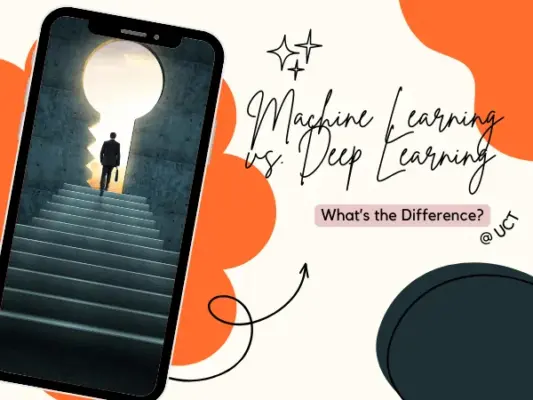
Introduction
As the fields of Artificial Intelligence (AI) and data science continue to evolve, terms like Machine Learning (ML) and Deep Learning (DL) are becoming increasingly prevalent. While these terms are often used interchangeably, they represent different approaches and technologies within the AI spectrum. Understanding the distinctions between Machine Learning and Deep Learning is crucial for grasping how modern AI systems operate and for making informed decisions about their applications. This blog will clarify these differences and explore their unique characteristics, applications, and benefits.
What is Machine Learning?
Machine Learning (ML) is a subset of AI that focuses on developing algorithms that enable computers to learn from and make predictions or decisions based on data. ML systems use statistical techniques to identify patterns and improve their performance over time without being explicitly programmed for every task. The core principle behind ML is to enable systems to learn and adapt from experience.
Key Characteristics of Machine Learning:
– Algorithm-Based: ML relies on algorithms such as linear regression, decision trees, and support vector machines to analyze data and make predictions.
– Feature Engineering: ML often requires manual feature extraction, where domain experts select and engineer relevant features from raw data to improve model performance.
– Training Process: ML models are trained on labeled data, where input-output pairs are provided, allowing the algorithm to learn the relationship between them.
What is Deep Learning?
Deep Learning (DL) is a specialized subset of Machine Learning that utilizes artificial neural networks with many layers (hence “deep”) to model complex patterns in large datasets. DL is particularly effective for tasks involving large volumes of unstructured data, such as images, audio, and text. By leveraging multiple layers of interconnected nodes, deep neural networks can automatically learn hierarchical features and representations from raw data.
Key Characteristics of Deep Learning:
– Neural Network-Based: DL uses deep neural networks (DNNs) with multiple hidden layers to automatically learn and extract features from data.
– Automatic Feature Extraction: DL models automatically learn hierarchical feature representations from raw data, reducing the need for manual feature engineering.
– Training with Large Datasets: DL models require extensive datasets and substantial computational power to train effectively, as they learn from vast amounts of data to identify complex patterns.
Machine Learning vs. Deep Learning: Key Differences
1. Complexity and Data Requirements:
– Machine Learning: Effective with smaller datasets and simpler problems. Requires manual feature extraction and domain knowledge.
– Deep Learning: Excels with large datasets and complex problems. Automatically extracts features and discovers intricate patterns in data.
2. Model Interpretability:
– Machine Learning: Models are generally more interpretable, allowing for easier understanding and explanation of how decisions are made.
– Deep Learning: Models, especially deep neural networks, are often considered “black boxes” due to their complexity, making them less interpretable.
3. Computational Resources:
– Machine Learning: Typically requires fewer computational resources and can be trained on standard hardware.
– Deep Learning: Requires significant computational power and specialized hardware, such as GPUs, to handle the complex and large-scale training processes.
4. Application Areas:
– Machine Learning: Commonly used in applications like fraud detection, recommendation systems, and predictive analytics.
– Deep Learning: Applied in areas such as image and speech recognition, natural language processing, and autonomous vehicles.
Applications and Use Cases
– Machine Learning Applications:
– Predictive analytics for sales forecasting
– Customer segmentation and targeting
– Anomaly detection in cybersecurity
– Deep Learning Applications:
– Image classification and object detection
– Natural language understanding and translation
– Voice recognition and synthesis
Conclusion
While both Machine Learning and Deep Learning are integral components of modern AI, they serve distinct purposes and are suited to different types of problems. Machine Learning offers flexibility and interpretability, making it ideal for a wide range of applications with moderate complexity. On the other hand, Deep Learning excels in handling large datasets and complex tasks, providing advanced capabilities in areas like image and speech recognition. Understanding the differences between these technologies can help businesses and researchers select the right approach for their specific needs and leverage AI effectively.